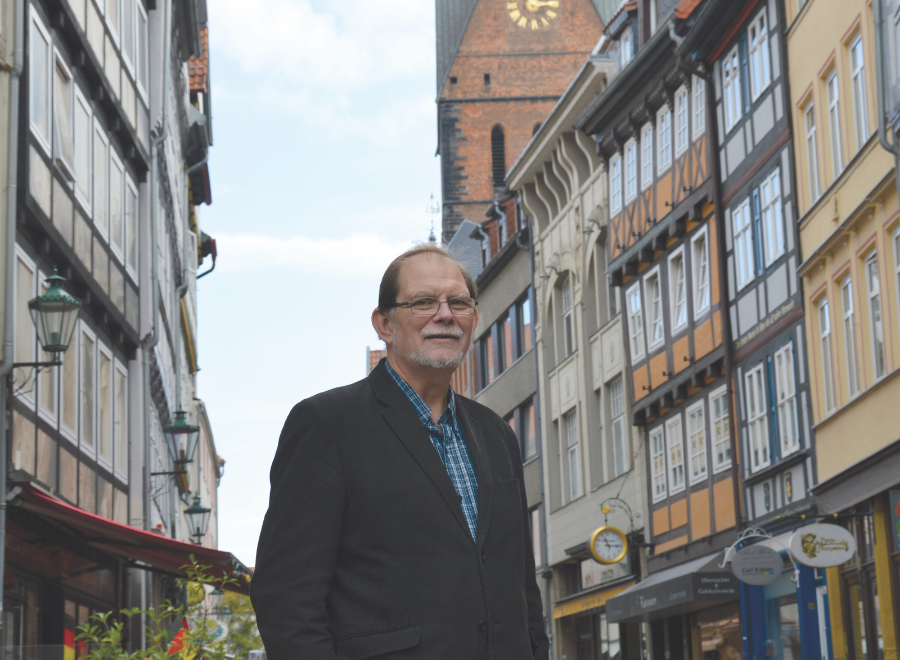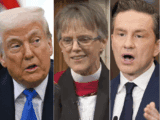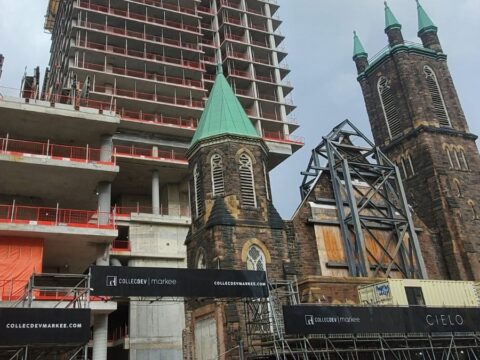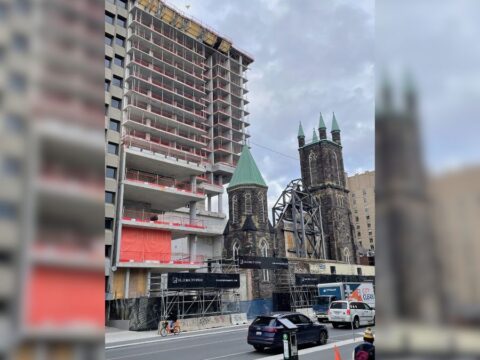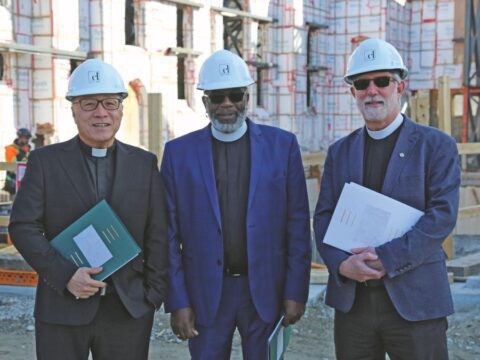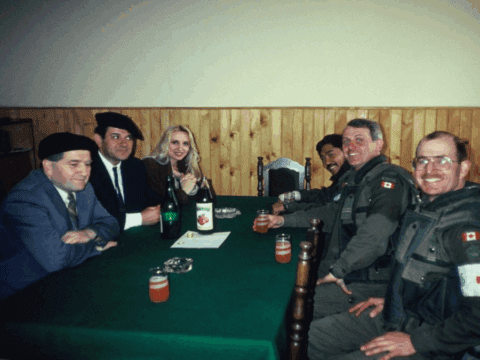Chris Ferguson spoke with Luc Rinaldi for a series on Intriguing United Church people you may not know but should.
I believe that life is contagious.
You may unsubscribe from any of our newsletters at any time.
When I was very young, I lived in a little town in the most southern part of the mainland of British Columbia called White Rock. At the bottom of my street, there was a very small First Nations reserve and a playground. Some kids challenged us as to why we were playing in their cemetery, and we challenged them back, asking what their cemetery was doing in our playground. I took this to my mom, who said, “They’re right, you know.”
My father was a war amputee. He was a soldier. He lost his leg. My whole image of being a father, being a man, being a human being, was this figure of someone with one leg. He was who he was, and violence took something away from him. Something about being a child of a war amputee led me to be more at ease about brokenness.
When I was 15, my mother encouraged me to work with the United Church in Vancouver’s Downtown Eastside. I ended up dealing with kids who came from tough circumstances and family situations. It was clear to me I knew nothing about that world. From that point on, I flung myself totally into the notion that if the church isn’t dealing with the people who are the most marginalized, poor, kicked-around, hurt and battered, it doesn’t make much sense.
It was a fascinating time to grow up and be alive. I graduated from university in 1971, and there was nothing that you couldn’t do. A lot of people thought I would be a community worker, a counsellor or a people’s lawyer, because I was really into advocacy, community organizing and counselling.
When I was ordained, there was a controversy. People saw me as too “out there” around social justice and prophetic ministry. A lot of people weren’t sure that I should be ordained and, if I was, that I’d stick around long.
Ministry is not restricted to the parish. By the time I’m done, I would hope to have served in a local ministry, community-based ministry and university chaplaincy and had a chance to work internationally. I’m not contemplating multiple careers. This is all part of the same ministry.
I am profoundly angry about what’s going on in Gaza. I’m also profoundly sad, and my heart is broken by the great amount of pain and suffering on all sides. But the coming together of churches [to produce] the Kairos Palestine document fills me with a profound sense of hope. And it’s not a cheap optimism.
Hope is what allows you to say that the future is still open, that the forces of death and destruction do not have the last word. God has not closed the chapter. God has worked so that history remains the place where our contributions can make a difference. The mighty will only have the last word if we cede it to them.
During the years I was at the United Nations, I worked on a text from Isaiah 59 that gave me a lot of inspiration. It talks about a horrible situation where there is no justice and truth suffers and stumbles, and anyone who tries to stand up for truth and justice is attacked and belittled. When God saw this injustice, God was angry and disappointed. But when God saw no human intervening to set things right, God was appalled. It made God sick. God couldn’t understand why no one was doing their job, why they were remaining silent. We were at the United Nations; God will not be appalled.
Iranian President [Mahmoud] Ahmadinejad came to New York, and everybody refused to engage him. It was during a very tense period in the relationship between the United States and Iran. When he reached the General Assembly, most groups walked out. So the churches — my office, the Mennonites and the Quakers — said, “If no one else will talk to you, we will.” Everybody hated that. But it was a fundamental commitment to truth and dialogue.
Part of the transformation I seek [for the World Communion of Reformed Churches] — and, yes, my naming as general secretary is part of this — is that we will no longer be able to say that some of us are [here] because we’re interested in communion while others are only interested in the justice commitment. We’re truly overcoming that dualism.
A transformed church in a world that stays the same is meaningless to me.
***
This story first appeared in The United Church Observer’s November 2014 issue with the title “Chris Ferguson, Global ambassador for the United Church.”

